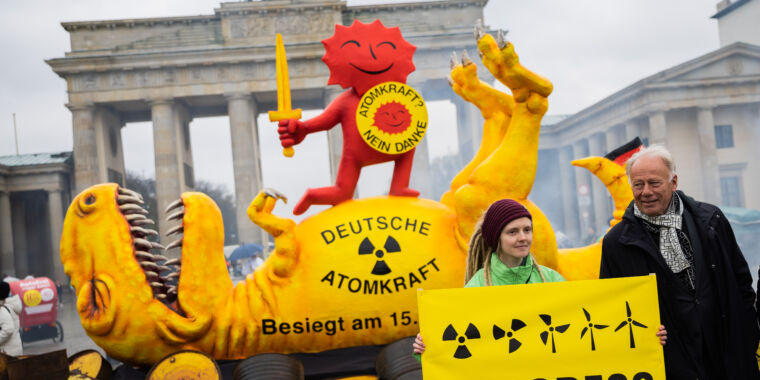The Decision to Exit Nuclear Power in Germany: A Historical Perspective
Germany’s recent move to shut down its last three nuclear power stations may seem puzzling to outsiders. This decision, made amidst growing concerns about climate change and energy security, has drawn criticism from various quarters. Even renowned climate activist Greta Thunberg has labeled it as a mistake.
However, to truly comprehend this decision, one must delve into the socio-political history of post-war Germany. Long before the current discourse on climate change, Germany had a strong anti-nuclear sentiment deeply rooted in its society.
Emergence of the Anti-Nuclear Movement
As early as 1971, West Germany witnessed the rise of the anti-nuclear movement with the publication of a bestseller titled ‘Peaceably into Catastrophe: A Documentation of Nuclear Power Plants’. Subsequent years saw massive protests, including the largest-ever demonstration in Bonn, signaling a widespread opposition to nuclear energy. These protests were fueled by a variety of concerns, such as safety fears, environmental risks, and a general aversion to concentrated power.
The activists of this movement advocated for renewable alternatives like solar and wind energy, emphasizing the principles of self-sufficiency, community participation, and citizen empowerment. Their vision of ‘energy democracy’ focused on decentralizing power generation and distribution, challenging the prevailing notions of centralized energy production.
The Energiewende and Renewable Energy Revolution
The anti-nuclear movement played a pivotal role in shaping Germany’s energy landscape and laid the groundwork for what is now known as the ‘Energiewende’ or energy transition. This initiative, launched by the Green Party in the early 1980s, aimed to shift away from both nuclear and carbon-intensive energy sources towards renewables.
Over the decades, Germany has made significant strides in renewable energy deployment, with renewables accounting for over 50% of its electricity consumption by 2023. The transition to renewables was not just a top-down process but also involved active participation from citizens, who owned a substantial share of the renewable energy capacity.
Challenges and Controversies
Despite the successes of the Energiewende, Germany faces persistent challenges, such as the issue of nuclear waste disposal. The country has struggled to find suitable storage sites for radioactive waste, leading to local opposition and protests. This unresolved issue underscores the complexities of transitioning away from nuclear power.
In conclusion, Germany’s decision to exit nuclear power reflects a long-standing societal opposition to nuclear energy and a vision for a more sustainable and equitable energy future. While the transition is not without challenges, it exemplifies a bold step towards a cleaner and more resilient energy system.
Image/Photo credit: source url





